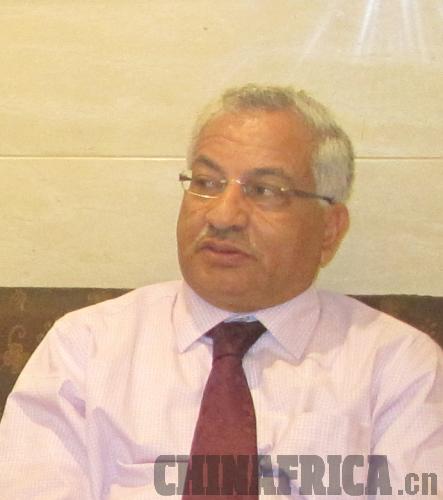|
 |
| Mohamed A.S. Abdel-Monem (NI YANSHUO) |
Water is essential for survival, and it is often said that the next world war would be fought over water. While water shortages are becoming a major concern globally, in Africa, water is already a high priority for leaders.
UNESCO statistics show that a total of 884 million people around the world, most of whom live in Africa, do not have access to safe water. Forty percent of Africa's population suffers directly because of insufficient water resources.
Many African countries have taken various measures to solve their problems, including establishing partnerships with countries that have more sophisticated water technology.
In April 2009, China's Ministry of Science and Technology (MOST) signed a memorandum of understanding with the United Nations Environment Program (UNEP) to launch four projects in Africa, mainly relating to water treatment. This was the first phase of environmental technology cooperation coordinated by the UNEP.
After the first phase was completed in 2010, MOST began the program's second phase in 2011, and six new UNEP-coordinated projects were launched in Africa. They aim to protect the continent's water resources and improve its ecosystem.
While attending the meeting to review the program's progress in Beijing on March 25-26, Dr. Mohamed A.S. Abdel-Monem, the Regional Team Leader of Ecosystem Management at the UNEP's African Regional Office, sat down with ChinAfrica to share his views on the program and environmental protection in China.
ChinAfrica: Could you brief us on the UNEP programs?
Mohamed A.S. Abdel-Monem: We, as the UNEP, deal with environmental issues. My office, the Regional Office for Africa, seriously looks at the issues and challenges facing African countries. To help them deal with these challenges, it is very important to build partnerships. I think building partnerships with China is very good. It's a success story of South-South cooperation between China and Africa under the coordination of the UNEP. We see a lot of similarities between African and Chinese challenges. That's why it is really important to share ideas, experiences and lessons [between these two sides]. So we started the program. In Phase I, we implemented four projects in African countries. Now, we are in Phase II and we have six other projects, covering a lot of countries in Africa. We have a theme for these affairs, which is "one river, one lake and one desert." This means that we focus on eco-systems as a whole. In this mid-term review, we are reviewing what we have achieved in the past a year and a half, and we are planning for the second half of the program. For us, this is a very important milestone.
Could you explain the theme "one river, one lake and one desert?"
In terms of "one river, one lake and one desert," when we started this phase, it was very important to focus on where we would work and which countries we would select. The idea we came up with was well received by the Chinese, Africans and the UNEP. As you know, water, for example, is not limited by borders, and can go from one country to another without getting permission. The Nile River flows across 11 countries. So, we are focusing on the whole ecosystem. There are problems associated with water quality, water quantity, land degradation and impacts on water planning, people's livelihoods and water shedding. We selected a lake, which is Lake Tanganyika. It is surrounded by four countries - Burundi, Tanzania, the Democratic Republic of the Congo and Zambia. When we say one desert, we mean the Sahara, in addition to the whole of Africa.
|